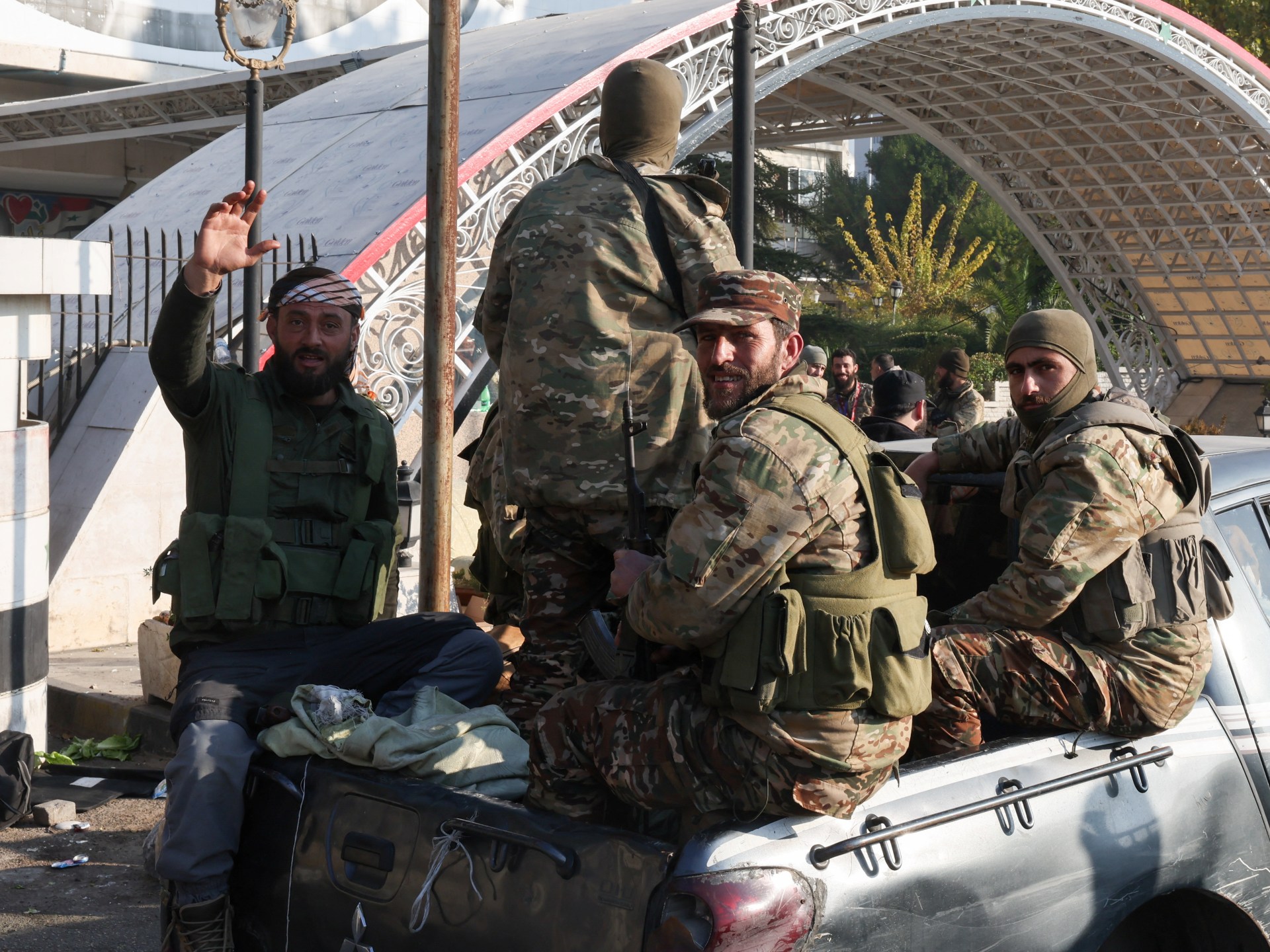HTS-linked Mohammed al-Bashir has been tasked with forming a transitional government.
Syria’s opposition forces are in talks to take formal control of the country after a sweeping offensive that captured swaths of territory, including Damascus, and ousted longtime President Bashar al-Assad.
Opposition leader Ahmed al-Sharaa, also known as Abu Mohammed al-Julani, met outgoing Prime Minister Mohammed al-Jalali on Monday to discuss the transition. Al-Jalali, who served under al-Assad, has agreed to transfer power to Hayat Tahrir al-Sham’s (HTS) Syrian Salvation Government (SSG).
“We are working to ensure the transitional period is quick and smooth,” al-Jalali was quoted as saying.
The transitional government is to be formed by Mohammed al-Bashir, who is close to the HTS – the group that led the Damascus takeover – and heads their Idlib-based SSG.
Geir Pedersen, United Nations special envoy to Syria, called for a transition process that ensures the continuity of Syria’s institutions and allows its people to “chart the path to meeting their legitimate aspirations … and restore a unified Syria”.
Once formed, the new government is likely to prioritise consolidating control over newly gained territories, reshaping government institutions and repatriating Syrian exiles and the displaced, Stephen Zunes, a professor of politics at the University of San Francisco, told Al Jazeera.
The rapid advance of HTS-led opposition forces marks a generational turning point in the country’s 13-year civil war. The conflict had claimed hundreds of thousands of lives, caused one of the largest refugee crises in modern history, reduced cities to rubble and triggered global sanctions that devastated the economy.
While clinging to power, al-Assad faced accusations from rights groups of brutal crackdowns, including killings, torture and forced disappearances, as well as using chemical weapons against Syria’s population.
“People are wondering what the new order will look like,” Al Jazeera’s Resul Serdar, reporting from Damascus, said, adding that a fragmented opposition could ignite intense political jockeying.
“Security is one of the main concerns.” An onslaught of Israeli attacks that have hammered the country’s military sites over the past two days is creating a “huge challenge” for them, he added.
‘Just retribution’
In charting a new course, HTS, a former al-Qaeda affiliate, has sought to moderate its hardline views, offering amnesty for soldiers conscripted under al-Assad’s regime and pledging protection for religious minorities.
However, the new leadership has assured to seek “just retribution” for senior military and security officials implicated in war crimes.
“We will not hesitate to hold accountable the criminals, murderers, security and army officers involved in torturing the Syrian people,” al-Sharaa said, offering rewards for information on those responsible for abuses.
This is a “historic new beginning for the Syrian people who have suffered unspeakable violence and atrocities over the past 14 years,” said the UN Commission of Inquiry on Syria. “It is incumbent on those now in charge to ensure that such atrocities are never again repeated.”
“The most important step is justice, and not retribution,” said Agnes Callamard, head of the rights group Amnesty International.
